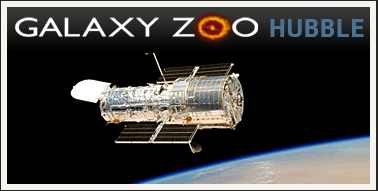| Crowd-sourced science |
| Written by Sue Gee | |||
| Wednesday, 17 August 2011 | |||
|
The original Galaxy Zoo project may be over but its legacy lives on. The Citizen Science Alliance currently has ten live Zooniverse projects and is looking for new ones.

Galaxy Zoo is the best known of the "crowd sourced" approaches to science. What do you do when you have a lot of pictures of galaxies and you haven't got the computer power or techniques to classify them automatically - ask the public to help. In return for the thrill of doing real science and exploring the universe computer using members of the public were asked to browse photos of galaxies and classify them. So successful was Galaxy Zoo that it has spawned other similar projects and a movement to involve and use the ordinary citizen in science projects. The Zooniverse is considered the home of Citizen Science on the web. It provides the opportunity for the public to be involved in academic research to the benefit of all concerned. Projects with large datasets that would have otherwise taken years can be be undertaken in reasonable time scales and involving volunteers directly in research offers them real payoffs for personal and educational development. Zooniverse is maintained and developed by the Citizen Science Alliance, a collaboration of scientists, software developers and educators. Its member institutions are museums and universities in the U.S. and the U.K including the University of Oxford which is where the Galaxy Zoo project originated in 2007, the Adler Planetarium, America's first planetarium and John Hopkins University and it works with a wide variety of partners around the world. New funding from the Alfred P. Sloan Foundation has enabled the CSA to call for new proposals for research that could benefit from the efforts and ability of volunteers deal with large volumes of data that can't be readily analysed by computer technology. The aim is to have a dozen ongoing projects at any one time so although you may have missed the deadline for the first selection round there should be another one in due course. According to Citizen Science Alliance, Proposals are welcomed from scientists or researchers in any discipline that would significantly benefit from the active participation of tens or hundreds of thousands of volunteers. Priority will be given to projects which produce high impact research and serve as case studies for citizen science in new areas of research. So if you have an idea that is being stifled for the lack of manpower to analyze the data think again. All you need to do is put together a proposal, there is a helpful form on the website, and wait to see if your project fits the general model.
More information
If you would like to be informed about new articles on I Programmer you can either follow us on Twitter or Facebook or you can subscribe to our weekly newsletter.
|
|||
| Last Updated ( Wednesday, 17 August 2011 ) |

